In the dynamic realm of agile Product Management, navigating through stakeholder pressures and changing requirements becomes a complex task. We will discuss some cases where businesses seek scope modifications in the middle of an ongoing iteration and explore proactive measures to prevent these scenarios.
The saying "Data creates information, information creates knowledge, and knowledge creates wisdom" encapsulates the essence of Knowledge Management (KM), a discipline dedicated to enhancing organizational performance through the refinement of structures, disciplines, and practical activities that collect and process knowledge within a corporation.
The dynamic landscape of project management is witnessing a shift where organizations are increasingly adopting Agile methodologies not merely as a choice but as a necessity for their competitive survival. While some criticize Wagile as the pinnacle of dysfunctional development methodologies, this article seeks to explore the nuanced reality, considering when Wagile may be a solution, its pros and cons, how to implement it effectively, and what to expect from this hybrid methodology.
As a former web designer, I've often observed the challenges faced by immensely talented print artists when transitioning their skills to web design. The distinct differences in technology, human-computer interaction, usability, and various other factors make the shift from print to web design a nuanced and sometimes challenging endeavor.





